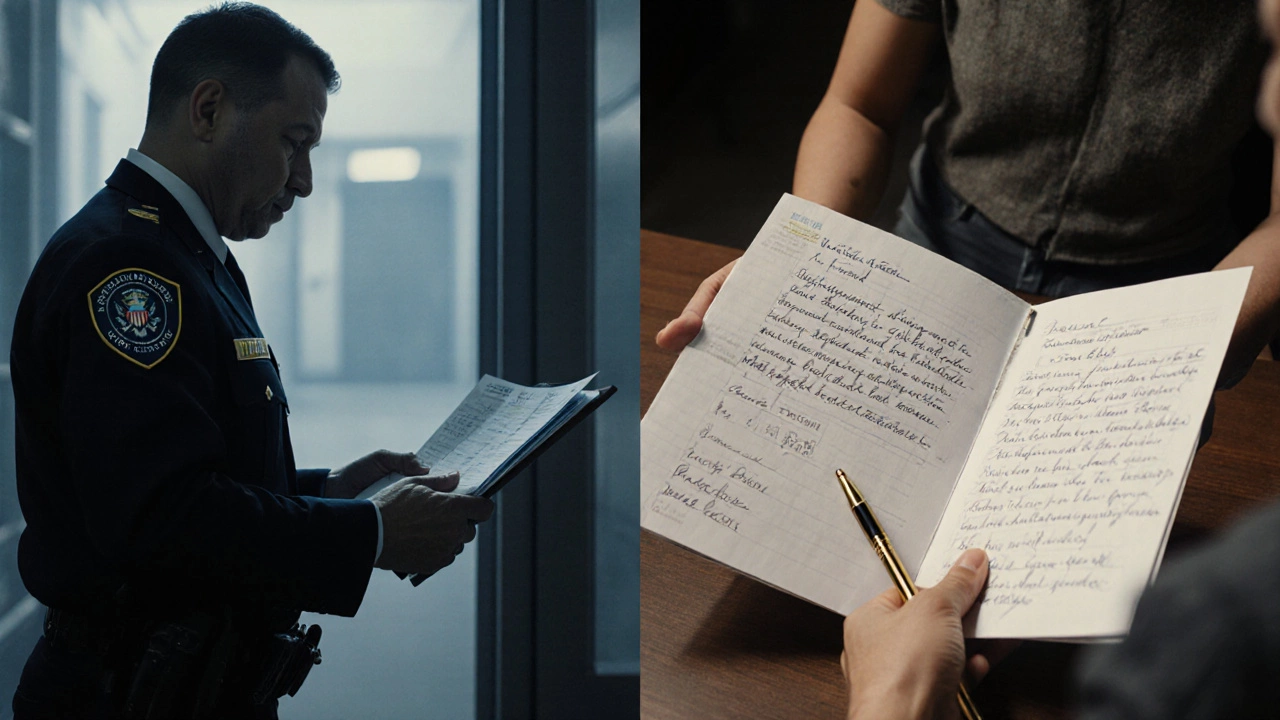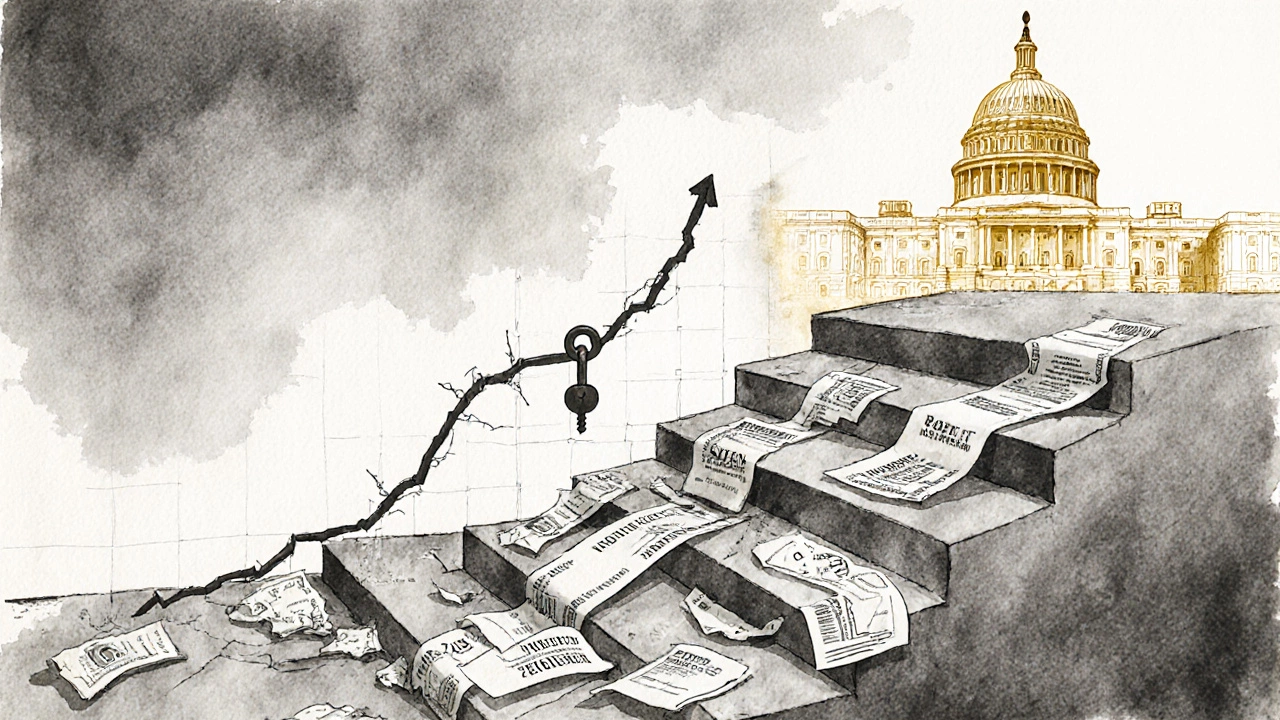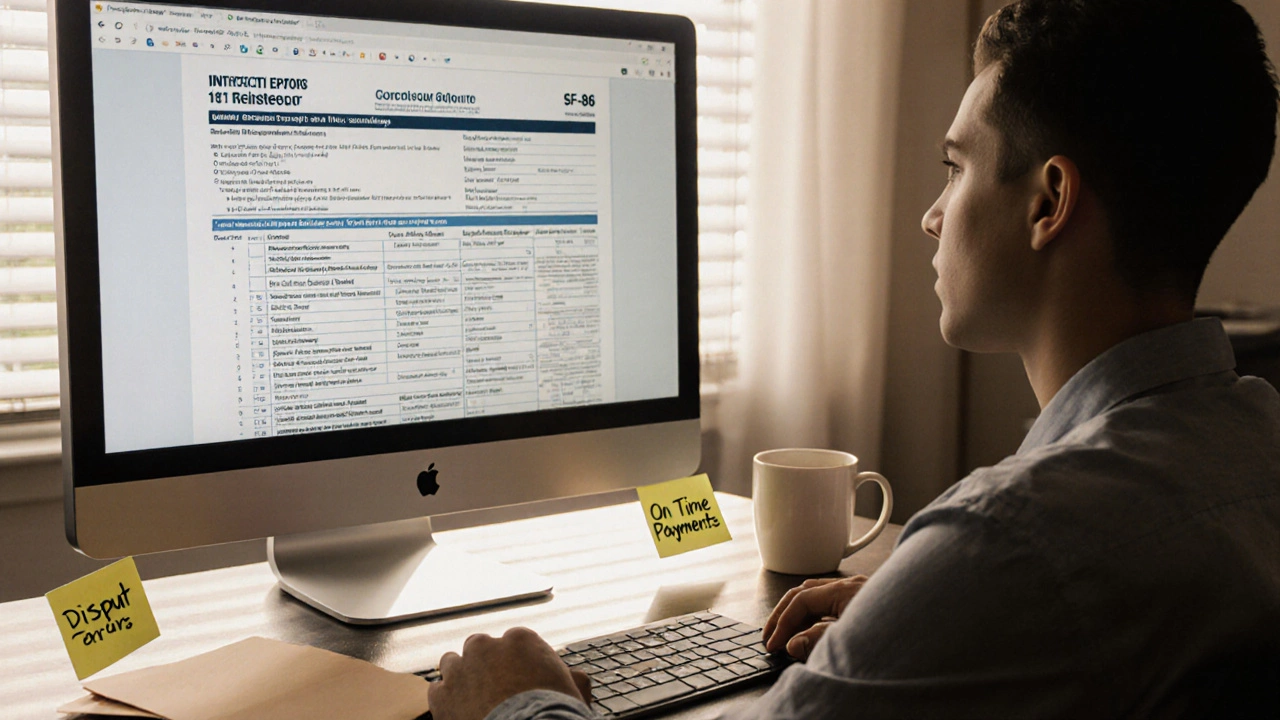Government Job Credit History Checker
Check Your Eligibility
Answer a few questions about your credit history to see if you have potential red flags that could affect government job applications.
Your Credit Situation
Many people assume that getting a government job is all about passing exams and having the right degrees. But there’s one thing most applicants overlook-your credit score. Yes, the same number banks use to decide if you qualify for a car loan or mortgage can also affect whether you get hired by the federal government or a state agency.
Not All Government Jobs Check Credit
The first thing to understand is that not every government job runs a credit check. Most entry-level positions-like postal workers, clerks, or lab assistants-don’t care about your credit history. But if you’re applying for a job that involves handling money, accessing classified information, working in law enforcement, or managing sensitive data, your credit score becomes part of the background check.The U.S. Office of Personnel Management (OPM) states that credit checks are only used for positions where financial responsibility is a key part of the job. That includes roles in the Treasury Department, IRS, FBI, CIA, Department of Defense, and any job with access to classified systems or budgets. Even some state and local government jobs, like city comptrollers or public utility managers, require a credit review.
What’s a Good Credit Score for Government Jobs?
There’s no official cutoff like “you need a 700 to get hired.” Instead, hiring managers look for red flags-not a specific number. A credit report tells them if you’ve been irresponsible with money, not just how good your score is.Here’s what raises alarms:
- Consistent late payments over months or years
- High levels of unpaid debt relative to your income
- Collection accounts or charge-offs
- Bankruptcies within the last 7 years
- Foreclosures or liens on property
If your credit report shows these issues, you might still get hired-but you’ll need to explain them. For example, if you had medical bills that led to collections, or lost your job during the pandemic and fell behind on payments, you can provide documentation and context. The government understands life happens. What they don’t accept is dishonesty or ignoring financial problems.
How Credit Checks Work in Government Hiring
When you apply for a federal job through USAJobs.gov, you’ll fill out Standard Form 86 (SF-86), the Questionnaire for National Security Positions. This form asks detailed questions about your finances, including debts, bankruptcies, and payment history. If you’re applying for a position requiring a security clearance, your credit report will be pulled by the Office of Personnel Management or another federal agency.For non-security roles, a basic credit check might still happen, especially if the job involves handling cash or contracts. The agency uses a third-party vendor to run the report, and they only see your payment history, outstanding balances, and public records-not your actual score. So even if your FICO score is 680, what matters is whether you’ve paid your bills on time.
Can You Be Denied a Job Just Because of Bad Credit?
Technically, yes-but it’s rare and usually not the only reason. The government follows the principle of “whole person” evaluation. That means they look at your entire background: work history, references, education, criminal record, and financial behavior together.For example, someone with a credit score of 580 but a 15-year clean work record, no criminal history, and a letter explaining a divorce-induced financial hardship is more likely to be hired than someone with a 720 score but a history of lying on applications or ignoring debt.
What gets you rejected is not bad credit-it’s bad judgment. If you’ve ignored bills for years, filed for bankruptcy multiple times, or tried to hide financial problems on your SF-86, that’s when you’re at risk.

How to Fix Your Credit Before Applying
If you’re planning to apply for a government job and you know your credit is weak, don’t wait until you submit your application. Start fixing it now. Here’s how:- Get your free credit reports from AnnualCreditReport.com. You’re legally entitled to one free report from each of the three bureaus (Equifax, Experian, TransUnion) every 12 months.
- Check for errors. Mistakes like accounts that aren’t yours or outdated late payments happen more often than you think. Dispute them immediately.
- Pay down high balances. Even if you can’t pay everything off, lowering your credit utilization ratio (the amount you owe compared to your limit) helps your standing.
- Set up payment reminders. Missed payments hurt more than high balances. A few on-time payments over six months can rebuild trust.
- Don’t open new credit accounts right before applying. New inquiries can lower your score temporarily and raise suspicion.
It takes time, but even small improvements matter. If you’ve been paying bills on time for the last six months, mention that in your application. Show progress, not perfection.
What If You Have a Bankruptcy or Foreclosure?
Bankruptcies and foreclosures stay on your report for 7 to 10 years. But they don’t automatically disqualify you. Many people with past bankruptcies work in federal agencies today.What matters is what you’ve done since. Did you rebuild your finances? Did you complete a financial counseling program? Are you now managing money responsibly? The government looks for evidence of change.
For example, if you filed Chapter 7 bankruptcy in 2020 but have paid every bill on time since 2022, kept your debt low, and saved $5,000 in an emergency fund-that’s a strong story. Write it down. Be ready to explain it in an interview.
Special Cases: Security Clearances
If you’re applying for a job that requires a security clearance (Secret, Top Secret, etc.), the bar is higher. The Department of Defense and intelligence agencies use a stricter standard called “financial responsibility.” They don’t just want you to pay your bills-they want to know you’re not vulnerable to blackmail or bribery.Here’s what they watch for:
- Debt-to-income ratio over 43%
- Unpaid debts over $7,500
- Delinquent payments in the last 12 months
- Co-signed loans you haven’t paid
- Failure to file taxes
Many applicants get denied clearance not because they’re broke, but because they’ve ignored their financial obligations. If you owe money, you can still get cleared-but you must show a repayment plan. Even a small monthly payment to a collection agency can make a difference.

What to Do If You’re Denied Because of Credit
If you’re rejected because of your credit history, you’ll get a written notice. It will say why and tell you how to appeal. Don’t ignore it. You have the right to respond with documentation, letters from creditors, or proof of repayment plans.Many people get their applications reconsidered after submitting a detailed letter explaining their situation. For example, one applicant was denied a job with the Department of Homeland Security because of a defaulted student loan. He provided proof that he had entered an income-driven repayment plan and had made 14 consecutive on-time payments. His application was approved six weeks later.
Myth Busting: Credit Score vs. Credit History
A lot of applicants think they need a high credit score to get a government job. That’s not true. What matters is your credit history-not your FICO number. You can have a 620 score with perfect payment history and no collections, and you’ll likely pass. You can have a 750 score with multiple late payments last year, and you’ll raise red flags.Focus on your report, not your score. Use free tools like Credit Karma or Experian to monitor your report. Look for patterns of behavior, not just numbers.
Final Advice: Be Honest, Be Prepared
The government doesn’t expect you to be financially perfect. They expect you to be responsible. If you’ve made mistakes, own them. If you’re working to fix them, show it. Lying on your SF-86 or hiding debts is the fastest way to get disqualified.Start early. Check your credit at least six months before applying. Clean up errors. Pay down what you can. Show progress. And remember-your credit report is just one part of your application. Your skills, experience, and character matter more.
Do all government jobs check your credit score?
No, only jobs that involve handling money, accessing classified data, or managing budgets typically require a credit check. Entry-level roles like clerks or postal workers usually don’t.
What credit score do I need to get a federal job?
There’s no minimum score. The government looks at your credit history, not your FICO number. They care about late payments, collections, high debt, or bankruptcies-not whether your score is 650 or 750.
Can I get a government job with bad credit or a bankruptcy?
Yes, if you can show you’ve taken steps to fix your finances. Paying off debts, entering repayment plans, and making on-time payments for at least six months can improve your chances. Honesty and responsibility matter more than past mistakes.
How far back does a government credit check go?
Credit reports used for government hiring typically show the last 7 to 10 years. Bankruptcies stay on your report for 10 years, but the focus is on recent behavior-especially the last 12 to 24 months.
Will checking my own credit hurt my chances?
No. Checking your own credit is a soft inquiry and doesn’t affect your score or your application. In fact, it’s smart to check before applying so you can fix errors or explain issues ahead of time.
Next Steps for Applicants
If you’re preparing for a government job and worried about your credit:- Request your free credit reports from AnnualCreditReport.com today.
- Dispute any errors you find.
- Start making on-time payments-even small ones-on any overdue accounts.
- Write a brief explanation for any negative items you expect to show up.
- Keep copies of all payment receipts and correspondence with creditors.
Don’t wait until the last minute. Fixing credit takes time. But with a clear plan and honest communication, you can still land the job you want-even if your credit history isn’t perfect.
